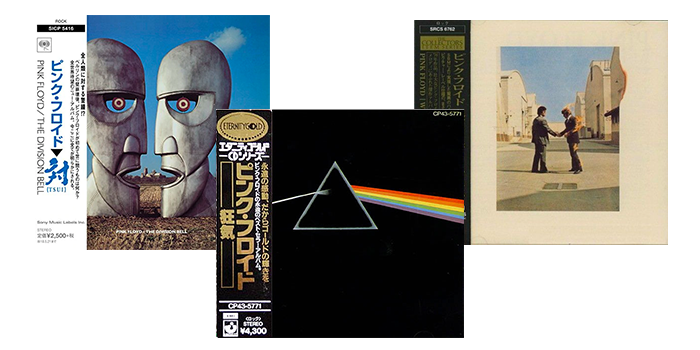Hello and Welcome Back... I received a email recently from 'Randy' in the U.S asking me why i post so many Japanese Made CDs on this site... 'Whats My Obsession with Japanese CDs'??
One Word = Sound Quality
And then i thought, 'Am i The Only One' who thinks this? That Japan Made CDs in the 80s & 90s have a better sound quality than those made in Australia, The U.S or even the U.K..
As it turns out, i was right..
This is from a site that i found interesting and may give you guys an clue as to why i love CDs made in Japan..
Copied from https://blog.fromjapan.co.jp/en/ with Thanks..
A Guide to Japanese CDs – everything you need to know about collecting Japanese music CDs
Buying a CD of your favorite artist’s latest single may be a thing of the past in many countries, but that’s certainly not the case in Japan where CD sales still make up over a third of all music sales.
Outside of Japan, many music collectors are fans of Japanese CDs due to their higher quality masters, Japan-exclusive bonus tracks and general collectibility.
If you are a fan of city pop or other Japanese music, then you may also want to dive into Japanese CD collecting. However, when you can’t speak Japanese, the world of Japanese CDs can seem a little daunting. Well, you don’t need to fear as this article takes a deep dive into all things Japanese CDs – enjoy!
Why are CDs in Japan so expensive?
If you’ve already done some research into buying Japanese CDs, you have probably noticed that they are considerably more expensive than CDs in other countries.To incentivize the domestic market to buy Japanese CDs and not import cheaper ones from North America and Europe, many western artists began to release bonus tracks that can only be found on the Japanese releases.
Japanese CDs often come with bonuses such as detailed booklets and photos of band members making them must-have collector’s items for many music fans!
Do Japanese CDs sound better than Western releases?
Japanese CDs are known for their quality sound, and many music fans report that their Japanese CDs sound much better than their western counterparts.
According to collectors, during the ‘80s and ‘90s many Japanese releases of Western albums had remarkably better mastering compared to their American and European counterparts, making Japanese CDs from this era a favorite amongst audiophiles.
What are Japanese CD Obi?

An “obi” (also known as an “obi strip”) is a paper spine card with information about the album that sits in the jewel case of the CD.
The name obi comes from the Japanese word for “belt”, originally used to describe the sash that holds together a kimono.
The obi of a CD will have information about the original release date, the artist, their history and more – all in Japanese of course.
Second-hand CDs that still have the obi intact sell for considerably more than those without an obi strip as they are preferred by collectors.
Be sure to check out this site for all things Japan = https://blog.fromjapan.co.jp/en/


No comments:
Post a Comment
Note: Only a member of this blog may post a comment.